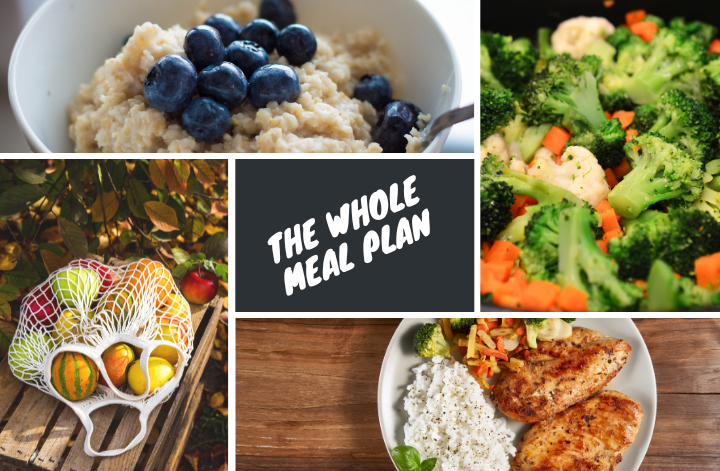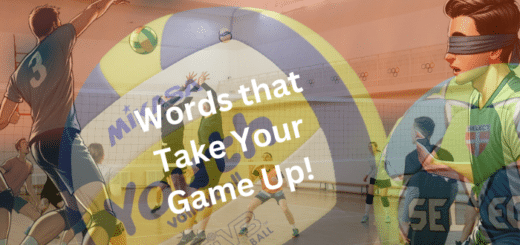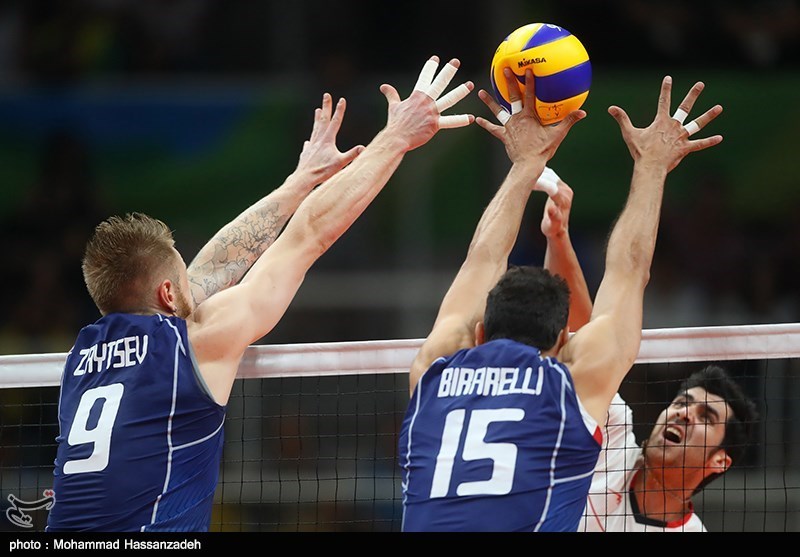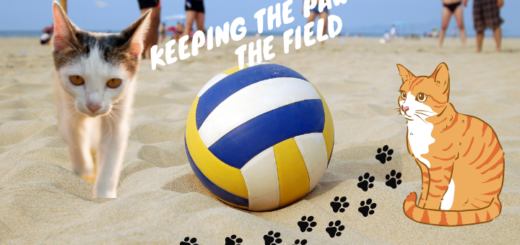7-Day Meal Plan for Volleyball Players

Volleyball players need to follow a strict meal plan if they want to bring their A-game on the court. But amid all the bomamrdment of information out there, it is difficult for volleyball players to know the exact meal plan that they can follow. That is why we bring a comprehensive 7 day meal plan for volleyball players that can help them in maintaing the shape as well as bringing their top game at a time which matters the most.
7-Day Meal Plan for Volleyball Players
Before we start, there is a little caveat to this plan.
A specific meal plan varies significantly from player to player and their lifestyle.
Similarly, players have different types of workout schedules, exercise intensity, body shapes, and daily routines. Even the meal plan for different volleyball positions, like libero, hitter, or Defense Specialist, will significantly vary from each other.
So there’s no one fit for all solutions.
But there is a general meal plan for every volleyball player that they can follow to play the game perfectly.
This plan focuses on a balance of protein to aid muscle recovery, carbohydrates for energy, and plenty of fruits and vegetables for overall health.
Day One

Breakfast: Greek yogurt with granola and mixed berries, 1 whole-grain toast with almond butter.
Snack: Banana and a handful of nuts.
Lunch: Grilled chicken salad (spinach, cherry tomatoes, cucumbers, bell peppers, olive oil dressing).
Snack: Whole grain crackers with hummus.
Dinner: Salmon with quinoa and roasted Brussels sprouts.
Day Two

Breakfast: Oatmeal with banana slices, chia seeds, and a drizzle of honey.
Snack: Apple and string cheese.
Lunch: Tuna salad sandwich on whole-grain bread, side of carrot sticks.
Snack: Greek yogurt with a handful of almonds.
Dinner: Lean steak with sweet potatoes and steamed broccoli.
Day Three

Breakfast: Whole grain pancakes with fresh berries and a dollop of Greek yogurt.
Snack: Trail mix (nuts, seeds, dried fruits).
Lunch: Turkey and cheese wrap with a side of mixed fruit.
Snack: Cottage cheese with pineapple chunks.
Dinner: Grilled shrimp, brown rice, and roasted asparagus.
Day Four

Breakfast: Scrambled eggs with avocado on whole grain toast, orange.
Snack: Greek yogurt and granola.
Lunch: Quinoa salad with mixed vegetables and grilled tofu.
Snack: Celery sticks with peanut butter.
Dinner: Baked chicken with whole wheat pasta and tomato sauce.
Day Five

Breakfast: Overnight oats with almond milk, mixed berries, and a sprinkle of nuts.
Snack: Banana and a handful of walnuts.
Lunch: Grilled chicken Caesar salad on a whole wheat wrap.
Snack: Rice cakes with almond butter.
Dinner: Grilled fish with couscous and steamed spinach.
Day Six

Breakfast: Smoothie with banana, spinach, blueberries, Greek yogurt, and a scoop of protein powder.
Snack: Handful of almonds and a pear.
Lunch: Turkey and avocado sandwich on whole-grain bread, side salad.
Snack: Greek yogurt with a drizzle of honey and a handful of mixed berries.
Dinner: Stir-fried tofu with a variety of colorful vegetables over brown rice.
Day Seven

Breakfast: Poached eggs on whole grain toast, side of mixed fruit.
Snack: Baby carrots with hummus.
Lunch: Salmon salad with a variety of greens, cherry tomatoes, cucumbers, and bell peppers.
Snack: Cottage cheese with fresh peaches.
Dinner: Baked chicken with roasted sweet potatoes and green beans.
Also…
Please remember to drink plenty of water throughout the day.
It’s a rule of thumb that athletes should divide their body weight by two and then drink one ounce per pound.
For example, if an athlete has a weight of 180 lb, they should drink 90 ounces of water (almost 9 glasses) per day.
What to Eat if You Do Volleyball Workout?
Now let’s move to compensate for the workout that you may do as a volleyball athlete. As a matter of fact, many volleyball athletes engage in intense work, which means that they have to eat accordingly.
If you are one such volleyball player, here are the things you should eat before and after every workout. But remember that you can cut down these things based on the intensity of workout you are doing.
Pre-workout Meal for Volleyball Players
Before a volleyball workout, it’s important to fuel your body with the right combination of carbohydrates, protein, and fluids. Here are some food suggestions for pre-workout and post-workout meals:
- Complex Carbohydrates: Opt for foods that provide sustained energy, such as whole grains (oatmeal, whole wheat bread), sweet potatoes, quinoa, or brown rice.
- Lean Proteins: Include a source of lean protein to support muscle function and repair. Examples include boiled eggs, grilled chicken breast, turkey, fish, tofu, or Greek yogurt.
- Fruits and Vegetables: Fruits and vegetables provide vitamins, minerals, and antioxidants. Choose options like bananas, berries, oranges, leafy greens, or bell peppers.
- Hydration: Drink plenty of water to ensure adequate hydration before your workout. You can also include a sports drink if you anticipate a particularly intense or prolonged session.
Post-workout Meal for Volleyball Players
- Protein-Rich Foods: Consuming protein after exercise helps with muscle recovery and repair. Opt for options like lean meats, eggs, fish, dairy products (milk, yogurt), legumes, or plant-based protein sources like tofu or tempeh.
- Complex Carbohydrates: Replenish your glycogen stores with carbohydrates to restore energy levels. Choose whole grains, fruits, or starchy vegetables like sweet potatoes or quinoa.
- Healthy Fats: Incorporate sources of healthy fats such as avocados, nuts, seeds, or olive oil, which provide essential nutrients and promote satiety.
- Hydration: Drink plenty of water to rehydrate after your workout. If you’ve had an intense or prolonged session, consider a sports drink to replenish electrolytes.
What Should Volleyball Players Not Eat (And Drink) While They Are on a Meal Plan?
As you gear up for the 7-day volleyball meal plan, it’s important that you must avoid the following things as much as possible.
While many volleyball players put special focus on what to eat, they ignore what not to eat, which results in their poor health and eventually impacts their game.
- Processed and Fast Foods: These foods are often high in unhealthy fats, sodium, and added sugars. They offer little nutritional value and can negatively impact your energy levels and recovery.
- Sugary Drinks and Soda: Beverages like soda, energy drinks, and sweetened juices can lead to dehydration and provide empty calories. Opt for water, unsweetened sports drinks, or natural fruit juices instead.
- High-Fat Foods: While some fats are essential for a healthy diet, it’s important to choose healthier sources such as avocados, nuts, and olive oil. Avoid excessive consumption of fried foods, fatty cuts of meat, and high-fat dairy products.
- Excessive Sweets and Desserts: Foods like candy, cookies, cakes, and pastries are typically high in refined sugars and low in nutritional value. They can cause energy spikes followed by crashes, affecting your performance on the court.
- Alcohol: Drinking alcohol can negatively impact your hydration levels, coordination, and reaction time. It’s best to avoid or limit alcohol consumption, especially before games or practices.
- Caffeinated Beverages: While moderate consumption of caffeine is generally fine, excessive amounts can lead to dehydration and may interfere with sleep patterns. Limit your intake of coffee, energy drinks, and caffeinated teas.
- Heavy or Spicy Meals Before Games: Consuming heavy or spicy foods before playing can cause discomfort, indigestion, or sluggishness. Opt for lighter, well-balanced meals that include lean proteins, whole grains, and vegetables.
Final Words
Having a proper volleyball meal plan is critically important as it helps you in playing the game perfectly. A meal plan, if followed properly, can even help you in preventing volleyball injuries in the long run.
For female volleyball players who have more time than 7 days, there is a detailed meal plan which can help them in imporving their game.

Ahmed is the founder of Ball and Net Sports, a platform where he writes about volleyball.
As a professional volleyball player who has participated in various national and international level volleyball competitions, he loves to teach other volleyball enthusiasts about the game.
He is now a professional volleyball coach who organizes volleyball camps and social events for talent hunting for top volleyball teams.
As a volleyball talent-hunting specialist, he loves to teach people how they can make their game better in the fast-paced volleyball environment where it is extremely difficult to get quality content free of cost.



